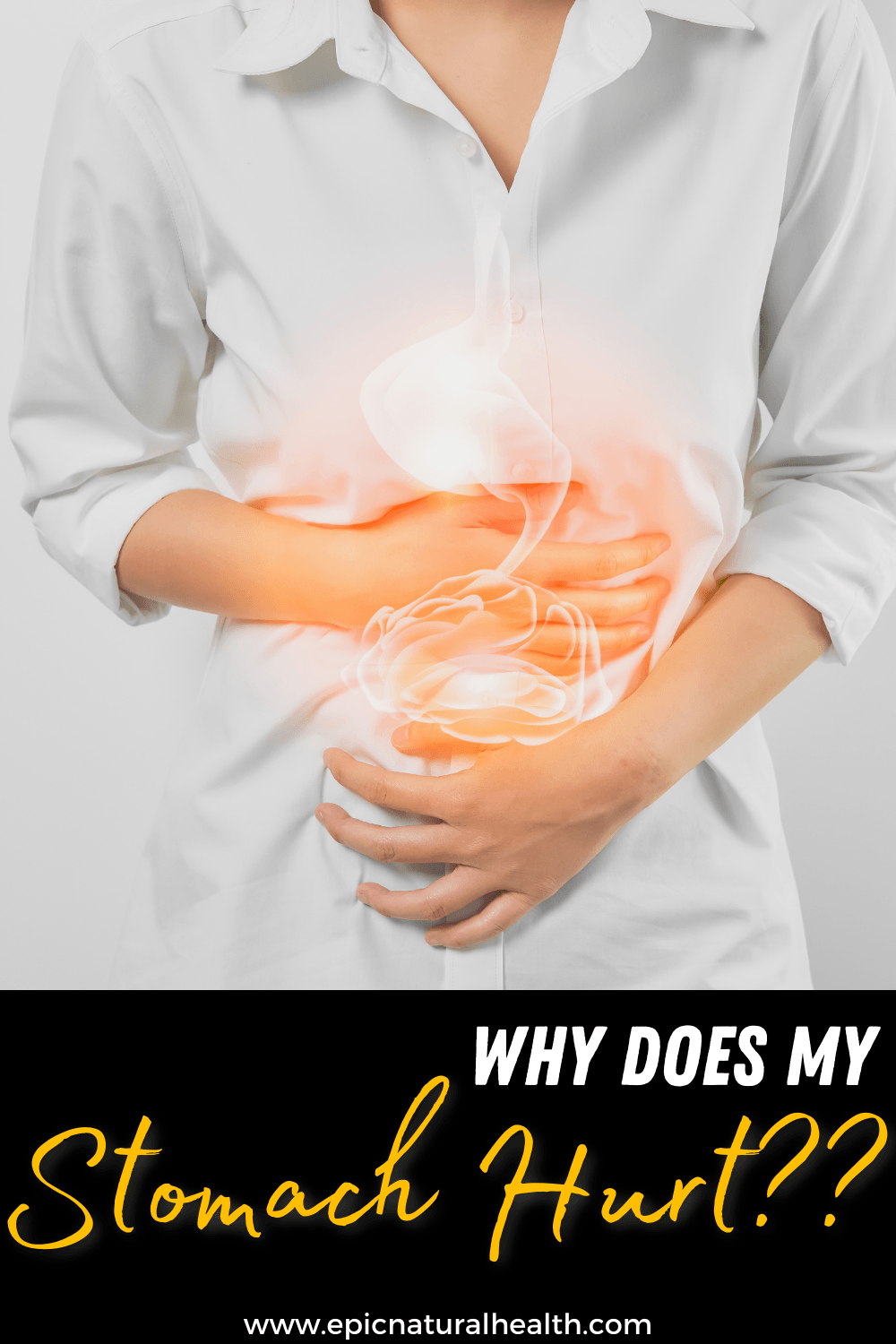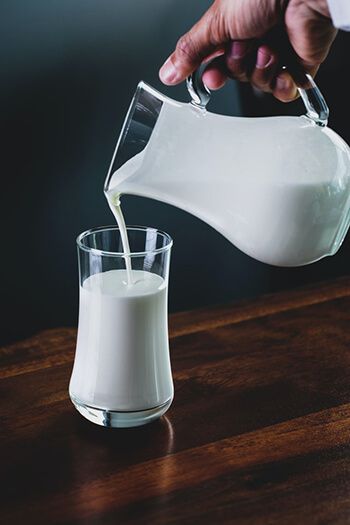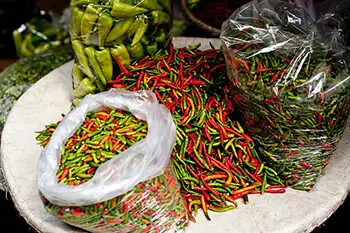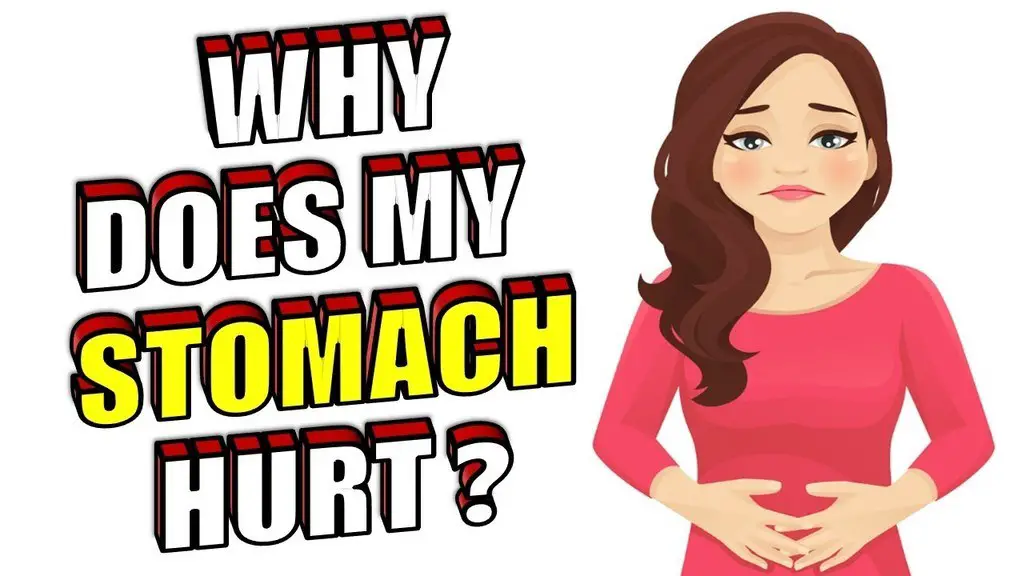Pain is the body's way of signaling that something isn’t. Stomach pain alerts us to something that's happening inside us that we might not know about otherwise.
Some reasons for stomach pain are obvious, like when someone gets hit in the gut or eats spoiled food. Other times, it might be hard to figure out. With so many organs in the abdomen, different problems can have similar symptoms.
Stay tuned to learn of the key causes of tummy troubles, plus how to treat them:
1. Infections
When bacteria or viruses get into a person's digestive system, the body reacts by trying to rid itself of the infection, often through vomiting or diarrhea.
Bacterial infections often cause food poisoning. Bacteria are also responsible for other conditions that may give a person belly pain, including:

- Pneumonia, which inflames the air sacs in one or both lungs, and can also cause a cough with phlegm or pus, fever, chills, and difficulty breathing.
- Urinary tract infections, characterised by pelvic pain, increased urge to urinate, pain or a burning sensation with urination, and blood in the urine.
- Strep throat, which can make your throat feel sore and scratchy, and may cause stomach pain if the inflammation spreads.
- Sexually transmitted diseases, like gonorrhoea, chlamydia, and trichomoniasis, can also cause skin rashes, weight loss, painful urination, and flu-like symptoms.
Viruses, another type of infection, are the leading cause of "stomach flu," or gastroenteritis. Bacteria and viruses both can pass easily from person to person. To avoid them, be sure to wash your hands well and often, and don't share cups, straws, or utensils with others.
2. Constipation
Constipation is one of the biggest triggers for belly pain. People can get constipated if their diet doesn't include enough fluids and fibre. When you’re constipated, you might find it difficult to go to the toilet, which can leave you feeling “backed up”, with symptoms of bloating, stomach-ache, loss of appetite, gas, and nausea.
You can prevent constipation by staying hydrated and eating a diet high in fibre-rich foods, like beans, oats, rice bran, barley, citrus fruits, apples, strawberries, peas, potatoes. whole grains, and cereals. Exercising frequently and avoiding processed, low-fibre foods should also help you to avoid constipation in the long run.
3. Irritation and Inflammation
When one of the body's internal organs is irritated or swollen, that can bring on stomach pain. You may experience pain from problems such as:
- Appendicitis, a condition in which the appendix becomes inflamed and filled with pus.
- Ulcers, caused by digestive acids that eat away at the tissues that line the stomach.
- Irritable bowel syndrome, a common disorder of the large intestine that causes cramping, abdominal pain, bloating, gas, and diarrhea or constipation, or both.
- Inflammatory bowel disease, which is an umbrella term used to describe disorders that involve chronic inflammation of your digestive tract.
These problems cause moderate to severe pain, which is often the body's way of telling us to get medical help. If you think your stomach-ache is a sign of something more serious, you should visit your doctor as soon as possible.
4. Food Reactions

Food reactions can be more than eating too much or basic indigestion. When people can't digest certain foods, it’s known as food intolerance. Lactose intolerance, for example, causes stomach pain when someone eats milk products. If you notice pain or other symptoms like gas, bloating, or diarrhea after eating certain foods, make an appointment to see your doctor.
Your doctor will advise that you avoid eating these foods in the future, as they will likely cause a flare-up when you include them in your diet, making you feel really ill.
Conditions like celiac disease, a reaction to proteins in some grains, or food allergies, like peanut allergy, are different from food intolerance. They involve immune system reactions that can actually harm the body beyond causing a temporary reaction.
5. Reproductive Problems

The digestive system isn't the only cause of belly aches. Menstrual cramps are a common cause of pain in the reproductive organs. Infections in the reproductive system, like pelvic inflammatory disease or other STDs, also can cause belly pain in girls.
Women often feel nausea during pregnancy, so if you have common morning sickness symptoms, you might want to look into buying a pregnancy test to stay on the safe side. Birth control isn’t always effective, and pregnancy can happen even when you were trying to avoid one.
6. Anatomical Problems
Some diseases or defects can affect how the organs do their jobs, causing pain. Crohn's disease can make the intestinal wall swell and scar so much that it may block the intestine.
Hernias can also block the intestines, as can growths like tumours. Something called torsion, meaning “twisting”, can affect the intestines, ovaries, and testicles, cutting off blood supply or affecting how they work. This can cause pain in the lower abdominal region, and poses a serious health risk if left untreated.
7. Emotional Distress

Ever wonder why you get “butterflies” in your stomach before doing something stressful? Or why you feel like your stomach is “tied in knots” after an argument? This is because your brain and your gut are connected. When people get stressed, anxious, or depressed, their emotions can trigger physical symptoms, like headaches or stomach pain.
Like the brain, the gut is full of nerves. It contains the largest area of nerves outside the brain with the digestive tract and the brain sharing many of the same nerve connections.
When you’re anxious or depressed, some of the hormones and chemicals released by your body enter your digestive tract, where they interfere with digestion. They have a negative effect on your gut flora and decrease antibody production. The chemical imbalance they cause can result in a number of gastrointestinal conditions, including stomach pain.

How Can You Find the Cause of a Stomach-ache?
To find the cause of a stomach-ache, consider the following:
- Your symptoms
- Illnesses you've had in the past
- Health conditions that other family members have
If your stomach pain is severe or has lasted for more than a few days, you should visit your doctor, who can do an examination and order tests, such as an X-ray, ultrasound, or blood test.
How To Treat Stomach Pain
Most bellyaches don't have a serious cause. They can happen for many different reasons, but most are easy to treat.
If you know for certain that your stomach pain is nothing serious, there are a number of natural cures for you to use for instant relief. Some of the best remedies for stomach pain are:
1. Eat yogurt
If you deal with constant stomach issues like bloating, yogurt can help keep your digestive system in tip-top shape. Try to stay away from salt, since it makes you retain water, and avoid foods that cause gas—such as beans, broccoli, and cauliflower.
As long as you've ruled out lactose intolerance, try eating yogurt with "live and active cultures", which can help regulate your digestive system.
2. Drink milk

Sometimes stomach aches can cause other pains, like heartburn, an irritation of the oesophagus that feels like a burning or tightness from stomach contents that are forced back up into the oesophagus. Milk is an effective heartburn remedy, as it neutralizes the acid produced by the stomach.
3. Avoid spicy foods

Eating spicy foods before bed is a common culprit of acid reflux, as is eating too much or too fast, and smoking. This condition often hits at night, when you're in the lying-down position.
Acid travels from the stomach to the oesophagus and throat, often causing heartburn. If you want to avoid drugs, cut down on the causes of acid reflux, especially spicy foods.
4. Have some ginger

A simple cure for stomach pain may be waiting for you in your spice rack: Ginger root. This popular cooking ingredient has a long history of being used successfully as a cure for an upset stomach. The reason ginger works so well for digestion has never been precisely identified, but some say it speeds up the pace at which food moves into the small intestine from the stomach.
5. Increase your fibre intake
Constipation is very common, and most people will experience it at some point in their lives. If you're experiencing symptoms of constipation, such as bloating or gas, the simplest thing you can do is increase your fibre intake.
Eat more fruits and vegetables, whole grains and beans, and kick-start your day with a high-fibre cereal.
6. Get your regular meals in
The digestive system's natural contractions are felt more severely on an empty stomach. Without food, the stomach becomes a sort of gastric echo chamber.
Hunger pangs serve a handy purpose: They're like a text message from the stomach to the brain indicating that it's time to pursue nourishment. It’s easy to solve stomach pain in this case: just eat some food.
7. Drink water

When you go for a run or do any type of tough workout, you might feel that little pinch of pain in your side. That’s typically musculoskeletal pain caused by dehydration or eating too much before you started to move. Water should help cure this ache. Always give yourself at least an hour after a meal before starting exercise, too.
8. Sip chamomile tea

Chamomile can bring relief to symptoms of an upset stomach, including nausea and vomiting. It contains bisabolol, which has anti-inflammatory properties and relaxes the smooth muscle lining of the digestive tract.
Chamomile also has other compounds like azulene, chamazulene, and matricin, which give the herb anti-inflammatory properties.
9. Have some spearmint and peppermint
Thanks to their menthol content, both peppermint and spearmint can soothe the pain of a stomach-ache. Menthol has been shown to relax the muscles in the GI tract.
10. Drink aloe vera juice

If your stomach pain is caused by constipation, aloe vera juice might be the answer you’re looking for. Aloe can serve as a laxative and may provide relief to people dealing with acid reflux by reducing the frequency of the symptoms associated with the condition.
11. Try figs
Figs are full of fibre, which helps promote bowel movements in people who struggle with stomach aches due to constipation. In that way, they tend to act as a natural laxative.
Fibre can aid the digestive system in a variety of ways, from adding bulk to the stool to promoting the growth of healthy gut bacteria.
12. Take a bath with Epsom salt
Warm water can be used for relieving stress, which can often manifest as a stomach-ache in many people. It also helps relax tense muscles which can be present after a stressful day. It may even help to add a bit of Epsom salt to your bath.
When Epsom salt is placed in water, it dissolves, releasing magnesium. Studies have found that magnesium helps increase serotonin in the brain, which is involved in relaxation.

Conclusion
Curing stomach-ache really is simpler than it seems. Providing you’re not experiencing severe symptoms, most natural causes of stomach pain can be effectively treated the way they came about: naturally.

